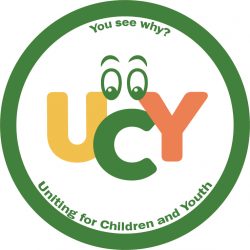Question 4 – Zone 5 Response
Contents
The Question in brief
Response from:
– Rob Campbell
The Question in Brief
In your opinion, is equitable, inclusive education important? Why or why not?
Rob Campbell
My core reason for running at all is to increase equity of outcome, not just of opportunity, at the OCDSB. The very point of public funded education as publicly funded education is to ensure equity of education across economic strata. I reviewed Camille’s experience and background and the Durham anit-black racism document and others a while ago, and both she and they are quite impressive. The outgoing Board indeed has actually ended up performing the incoming Board a real service (contrary perhaps to the early fears of some :). I don’t know Camille personally yet, but I’m at least encouraged.
As a past Trustee, I was appointed to the OCDSB’s Advisory Committee on Equity, worked closely with them, helped draft interim bylaws for them, and currently enjoy an endorsement from one of its members. I successfully pushed through a motion to start tracking student outcomes by poverty – never before down at the OCDSB.
In terms of equity of outcome by racialized minority, I look forward to doing what we can to proactively hire qualified visible minority teachers and other staff to provide for more role models in the system, as long as consistent with collective agreements and respecting existing staff. I would happily champion a motion requiring all staff to take anti-racism training when first onboarding and perhaps periodically, so that latent privilege and barriers may continue to be reflected on. I am most excited though I have to say at the prospect of tracking outcomes (grad rates, suspensions, advanced course registrations, well being and mental health measures by ethnicity and for other marginalized communities. I’d also like to look at including goals for equity enhancement at our schools in published school planning, and include this in school admin and superintendent performance reviews.
However, I also need to say that I’m concerned about a possible mono-focus on visible minorities to the exclusion of other marginalized minorities. LGBTQ student re known to suffer higher rates of depression and stress and have lower and have significantly lower academic outcomes, thsi is the case for students in poverty also, refugee kids, those with mental health challenges, and special education students. Racialized and visible minority students and families face daily subtle systemic bias as well, and studies have clearly shown the negative impact on academic and well-being outcomes.
I’d like to track outcomes (well being as well as academics) for all communities at risk and to disaggregated to the proper level of analysis. Indeed Ottawa’s black african-caribbean community has called on the OCDSB to do precisely this as I understand it. Some visible minority and ethnic groups in the system do quite well over all and many do not. Communities of colour, special education communities, and others are not monolithic and should not be treated that way if we want to get at root causes and to ensure that we are altering policy, or allocating dollars in the best way possible to make sure that OCDSB outcomes are more equitable over all. The importance of measuring things is to drive change: to embarrass the Board and to hold it accountable for really moving the needle on outcomes.
I would vote in favour of something similar to the DDSB framework, however it would be to recognize out new annual indigenous education planning, and be integrated into other work already afoot. More important than anything though, we also need to take full account of inequities across all modalities, including poverty inequality impacts and special education impacts. I believe that studies show that these are the two most importantly impacted ‘groups’ when it comes to outcomes. I would find it hard to support a framework that did not provide them at least equal weight then in its equity planning.
I look forward to the recommendations to be expected from the revamped OCDSB Advisory Committee on Equity (ACE) and the newly created Indigenous Education Advisory Committee (IEAC). I believe we need to consult with them and with independent voices in impact communities and work with them in partnership also.
I have no particular view on alt ed’s roles with respect to inclusion and diversity and its marginal impact versus regular education, though am open to a conversation and am willing to be persuaded.

